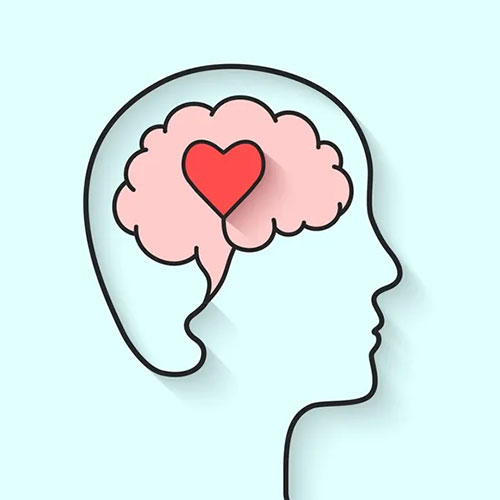Most of us dream of sleeping in on weekends, catching up on rest, and waking up refreshed. But what if you went beyond that — what if you slept for 23 hours straight? It might sound peaceful, but such extreme oversleeping can have serious effects on your body, brain, and emotions.
While sleep is necessary for health, there’s a fine line between restoration and risk. Sleeping for 23 hours may indicate a medical, psychological, or neurological problem that requires urgent attention. Let’s understand in detail what happens when you sleep for almost a full day.
Why Sleep Is Important for the Human Body
Sleep is not just downtime — it’s when your body heals, restores energy, and prepares for a new day. During deep sleep:
- Your brain clears out toxins and processes memories.
- The immune system repairs and strengthens.
- Hormones regulating appetite, stress, and growth are balanced.
- Muscles recover from daily wear and tear.
An average adult needs 7–9 hours of sleep per night. Anything beyond 10 hours regularly may indicate an underlying issue. And sleeping for 23 hours is not normal — it’s a red flag for health.
Is It Even Possible to Sleep for 23 Hours?
Under normal circumstances, no healthy person can sleep for 23 hours without waking up. The human body naturally cycles between sleep and wakefulness using the circadian rhythm — a biological clock that keeps you alert during the day and sleepy at night.
However, there are rare exceptions where such extreme sleep occurs:
- Kleine-Levin Syndrome (KLS) – Also known as “Sleeping Beauty Syndrome,” causes excessive sleepiness (18–20 hours a day).
- Coma or brain trauma – Causes prolonged unconsciousness, mistaken for sleep.
- Drug or alcohol overdose – Can suppress the brain’s wake signals.
- Severe depression – May lead to hypersomnia (excessive sleeping).
If someone truly sleeps 23 hours, it’s almost always due to a serious medical or neurological condition — not natural tiredness.
What Happens to Your Body If You Sleep for 23 Hours?
Sleeping for nearly an entire day affects every organ system in your body. Let’s explore the changes that occur in detail.
1. Brain Becomes Disoriented and Sluggish
When you wake after 23 hours, your brain doesn’t immediately understand your surroundings. You may feel confused, dizzy, and detached from reality.
Excessive sleep disrupts neurotransmitters like dopamine and serotonin — chemicals responsible for focus, mood, and alertness.
As a result, you may experience brain fog, poor memory, slower reaction time, and difficulty concentrating for hours after waking up.
2. Circulation and Heart Function Slow Down
Extended immobility reduces your blood flow and oxygen levels. The heart rate slows significantly, and blood can pool in the lower parts of the body.
This increases the risk of blood clots (deep vein thrombosis) and reduced oxygen supply to organs.
Over time, excessive sleeping has been linked to a higher chance of heart disease, stroke, and high blood pressure.
3. Muscles Weaken and Joints Stiffen
Your body depends on regular movement to maintain muscle strength and flexibility.
After 23 hours of lying still:
- Muscles lose tone and become sore.
- Joints may feel stiff, especially in the neck, back, and legs.
- Circulation to the limbs weakens, causing numbness or tingling.
If such inactivity continues for days, it can even lead to muscle atrophy — a reduction in muscle mass.
4. Metabolism Nearly Stops
During long hours of sleep, your body burns very few calories. The metabolic rate slows down drastically, leading to:
- Lower energy production
- Weight gain over time
- Imbalance in blood sugar levels
- Risk of developing insulin resistance
Oversleeping also disrupts the hormones leptin and ghrelin, which control hunger. This means you may feel hungry and overeat once awake, even though your body doesn’t need more energy.
5. Poor Blood Circulation and Oxygen Flow
When you lie down for nearly a full day, gravity affects blood movement. The lower body, especially the legs, gets less oxygen.
This can cause:
- Swelling in ankles or feet
- Tingling sensations
- Pressure sores if you remain in one position too long
That’s why long-term bedridden patients are regularly moved — the same risk applies here.
6. Hormonal and Biological Imbalance
Your hormones depend on your sleep-wake cycle. Sleeping too long interferes with cortisol (stress hormone) and melatonin (sleep hormone) balance.
This leads to:
- Low energy during the day
- Mood swings
- Irregular appetite
- Disrupted reproductive hormones in women and men
Over time, chronic oversleeping can confuse your body’s entire endocrine system — the network controlling hormones.
7. Digestive and Gut Issues
When you skip meals while sleeping for so long, digestion slows down dramatically.
You may experience:
- Indigestion or acid reflux
- Loss of appetite
- Bloating and nausea
- Irregular bowel movements
Your digestive system thrives on routine — irregular sleep patterns can throw off the gut’s rhythm and lead to chronic discomfort.
8. Emotional and Mental Health Effects
Paradoxically, sleeping too long can make you feel tired instead of refreshed. Oversleeping disrupts serotonin levels and may trigger sadness, anxiety, or irritability.
People who oversleep frequently are more likely to experience depression, mental fatigue, and lack of motivation.
Your brain associates prolonged inactivity with low energy — making you feel more drained, not more alive.
9. Circadian Rhythm Breaks Down
The circadian rhythm is your internal clock that keeps you synchronized with the day–night cycle. Sleeping for 23 hours completely destroys this rhythm.
When you wake, you won’t know whether it’s morning or night. The next time you try to sleep, your body might resist. This leads to insomnia and irregular sleeping patterns in the following days.
10. Social and Behavioral Impact
Aside from physical effects, extreme oversleeping disrupts your daily routine, relationships, and responsibilities.
You miss meals, work, and interactions — causing stress, guilt, and social withdrawal.
Long-term oversleeping can isolate individuals and worsen mental health conditions, especially if linked to depression or burnout.
Why Do Some People Sleep Excessively?
While sleeping for 23 hours is extreme, sleeping too much (10–14 hours regularly) can result from:
- Sleep disorders – Such as hypersomnia or sleep apnea.
- Depression – Oversleeping is a common symptom.
- Neurological damage – After trauma or brain injury.
- Medication side effects – Some antidepressants and sedatives cause drowsiness.
- Lifestyle factors – Irregular schedules, poor diet, or lack of sunlight.
If you frequently sleep for excessive hours, it’s important to seek medical advice — your body might be signaling distress.
How to Maintain a Healthy Sleep Cycle
To prevent oversleeping and keep your body balanced, follow these practical habits:
- Set a fixed bedtime and wake time. Stick to it, even on weekends.
- Avoid heavy meals, caffeine, and alcohol close to bedtime.
- Use natural light exposure during the morning to reset your body clock.
- Exercise daily, even light stretching helps regulate hormones.
- Create a peaceful sleep environment — dark, cool, and quiet.
- Limit naps to 20–30 minutes during the day.
- Seek medical help if you constantly feel tired or sleepy after long rest.
Consistency is key — quality of sleep matters more than quantity.
5 Most Common FAQs About Sleeping for 23 Hours
- Can a person really sleep for 23 hours continuously?
It’s extremely rare. A healthy person cannot sleep for 23 hours straight without waking up. Such a condition is usually caused by neurological disorders like Kleine-Levin Syndrome, a coma, or drug overdose. If someone sleeps this long, it’s a medical emergency and should be evaluated immediately by doctors. - What happens to your body when you oversleep that much?
Sleeping excessively slows down your metabolism, weakens muscles, reduces blood circulation, and confuses your internal body clock. Your brain feels foggy, and your heart rate drops. Emotionally, you may feel depressed, anxious, or tired instead of refreshed. Long-term oversleeping also increases risks of diabetes, heart disease, and obesity. - Can sleeping too much make you more tired?
Yes. Oversleeping reduces alertness and disrupts your natural sleep rhythm. When you stay in bed too long, your body temperature drops and endorphin levels fall, leading to sluggishness and fatigue. This is why people who sleep excessively often wake up feeling exhausted, lazy, or emotionally drained. - What are the medical conditions linked to excessive sleep?
Common conditions include hypersomnia, sleep apnea, thyroid disorders, depression, and Kleine-Levin Syndrome. Some neurological disorders and medication side effects also cause extreme sleepiness. If you experience long hours of sleep combined with constant tiredness, you should seek medical evaluation to rule out serious underlying issues. - How can I fix my oversleeping habits naturally?
Try maintaining a strict sleep schedule, get exposure to sunlight after waking, and include daily exercise. Avoid caffeine, alcohol, and blue light from screens before bedtime. Practice mindfulness or relaxation before sleep. If excessive sleepiness persists, consult a sleep specialist to check for disorders like hypersomnia or sleep apnea.
Final Thoughts
Sleeping for 23 hours might sound restful, but it’s a sign of serious imbalance — not relaxation. The human body needs movement, sunlight, and nourishment to stay healthy. Oversleeping this much disturbs the body’s natural functions, weakens muscles, and confuses the brain’s time signals.
If someone experiences extreme sleepiness or prolonged unconsciousness, treat it as a medical emergency. For most people, focusing on balanced sleep — around 7 to 9 hours daily — ensures that your body feels truly energized and refreshed.
In the end, good sleep is about quality, not quantity. Sleep enough to heal — but wake up to live.













 Join Us
Join Us Follow Us
Follow Us









